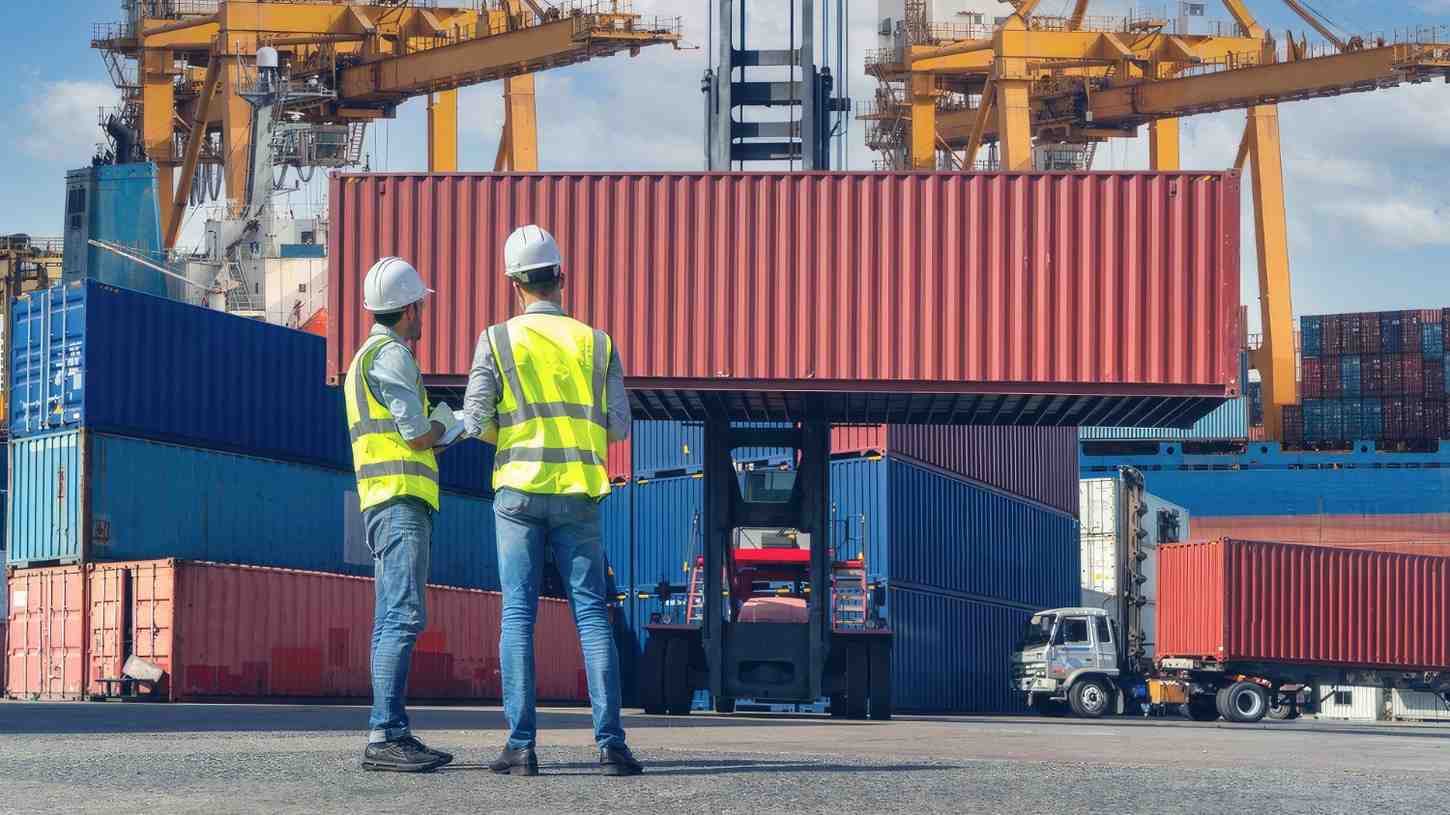
In an era where global trade dynamics are rapidly evolving, the United Arab Emirates stands at the forefront, redefining the essence of logistics and supply chain management. Anchored by its strategic geographic location, bridging the East and West, the UAE has emerged as a pivotal logistics hub, facilitating global commerce with unparalleled efficiency. Yet, as the logistics landscape burgeons, it is met with a myriad of challenges, from managing complex supply chains to adapting to the ebb and flow of global demand. Herein lies an untapped potential: the transformative power of logistics marketplaces, driven by the relentless tide of digital innovation.
Logistics marketplaces, digital platforms that seamlessly connect shippers, carriers, and logistics service providers, are not just a fleeting trend; they are the beacon of a new era in supply chain management. By leveraging cutting-edge technologies such as artificial intelligence, the Internet of Things (IoT), and blockchain, these platforms offer a promise of unprecedented efficiency, transparency, and reliability. In the bustling trade corridors of the UAE, where every second counts and sustainability is paramount, the adoption of such digital innovations could not only streamline operations but also carve paths to new heights of economic prosperity.
As we delve into the intricate world of logistics marketplaces, we uncover the myriad ways in which they are poised to revolutionize the UAE’s supply chain. From reducing operational costs and enhancing route optimization to fostering sustainability and resilience against disruptions, the potential is immense. This blog seeks to explore the digital frontier of logistics, illustrating how the UAE can harness these innovations to fortify its position as a global logistics powerhouse and steer the future of supply chain management towards a horizon of limitless possibilities.
Understanding the UAE’s Supply Chain Landscape
The foundation of the UAE’s logistics prowess lies in its strategic location, bridging the East with the West, and its world-class infrastructure, including state-of-the-art ports and airports. These assets have positioned the UAE as a critical hub in the global supply chain, facilitating the smooth flow of goods across continents. Despite these advantages, the UAE’s logistics sector faces challenges that mirror those of global logistics: enhancing supply chain visibility, improving coordination among diverse stakeholders, and adapting to rapidly changing demand patterns. Addressing these issues is crucial for maintaining the UAE’s competitive edge in the global logistics arena.
The UAE’s supply chain is a complex ecosystem, involving a multitude of players, from government bodies to private logistics companies. While the sector has seen significant growth, it is not without its vulnerabilities. Supply chain visibility remains a challenge, with companies often struggling to track shipments in real-time. The coordination among various stakeholders, including suppliers, logistics providers, and regulatory agencies, requires further optimization to enhance efficiency. Additionally, the fluctuating nature of global demand necessitates a more agile and responsive supply chain model, capable of adapting to market changes swiftly and efficiently.
The Rise of Logistics Marketplaces
The emergence of logistics marketplaces in the UAE signifies a pivotal shift towards digitalization in the logistics sector. These platforms, exemplified by the innovative efforts of companies like Wahyd Logistics, offer a digital solution that connects shippers with logistics service providers through a user-friendly interface. This model not only streamlines the process of finding and booking logistics services but also introduces a level of efficiency and transparency previously unseen in the traditional logistics model. The success of logistics marketplaces in the UAE can be attributed to their ability to leverage technology to solve long-standing industry challenges, offering real-time tracking, sophisticated algorithms for route optimization, and a competitive marketplace for logistics services.
Wahyd Logistics has been at the forefront of this transformation, revolutionizing the logistics and supply chain landscape of the UAE with its Logistics Marketplace platform. The platform stands out for its ability to connect businesses in need of logistics services with providers in a seamless, efficient manner. By harnessing the power of technology, Wahyd Logistics has managed to reduce operational costs significantly while enhancing service delivery. The platform’s real-time tracking and use of sophisticated algorithms ensure that the process of booking freight services is not only efficient but also transparent, setting a new standard in the logistics industry.
Impact on the UAE’s Supply Chain
The advent of logistics marketplaces has had a profound impact on the UAE’s supply chain, ushering in a new era of digital efficiency and connectivity. These platforms have revolutionized the way logistics operations are conducted, offering significant improvements in operational efficiency and cost-effectiveness. By facilitating direct connections between shippers and logistics service providers, logistics marketplaces have eliminated many of the inefficiencies associated with traditional brokerage systems. This direct connection ensures that goods are moved more swiftly and economically, optimizing resource utilization and reducing transportation costs.
Furthermore, logistics marketplaces contribute to the sustainability of the supply chain. Through route optimization and enhanced load matching, these platforms can significantly reduce the carbon footprint of logistics operations. The ability to track shipments in real time and predict delivery times more accurately also contributes to reducing waste and improving overall supply chain efficiency. As the UAE continues to focus on sustainability and green initiatives, the role of logistics marketplaces in promoting environmentally friendly logistics practices becomes increasingly important.
Challenges and Considerations
Despite the numerous benefits offered by logistics marketplaces, their integration into the UAE’s supply chain landscape is not without challenges. Regulatory hurdles pose a significant barrier, as the logistics sector is heavily regulated, with stringent requirements for security, customs compliance, and data protection. Ensuring that logistics marketplaces comply with these regulations while maintaining the flexibility and efficiency that define their value proposition requires careful navigation and continuous dialogue with regulatory bodies.
Another challenge lies in the integration of these digital platforms with existing logistics and supply chain systems. Many businesses in the UAE operate on legacy systems that may not be readily compatible with the functionalities offered by logistics marketplaces. Achieving seamless integration requires significant investment in technology and a willingness to embrace change, which can be daunting for established players. Additionally, concerns regarding data security and the protection of sensitive information must be addressed. Logistics marketplaces handle vast amounts of data, including shipment details, business transactions, and personal information. Ensuring the security of this data against potential breaches is paramount, necessitating robust cybersecurity measures and compliance with international data protection standards.
Moreover, maintaining the quality and reliability of logistics services in a marketplace environment presents its own set of challenges. The decentralized nature of logistics marketplaces means that service standards can vary significantly among different providers. Establishing stringent verification processes and continuous quality monitoring is essential to ensure that all services offered through the platform meet the high standards expected by shippers and receivers alike. This not only maintains the platform’s reputation but also builds trust among its users.
Adapting to Rapid Technological Changes
The logistics sector is undergoing rapid technological changes, with new innovations emerging at a swift pace. Logistics marketplaces must remain at the cutting edge of technology to offer the best possible solutions to their users.
This necessitates ongoing investment in research and development, fostering a culture of innovation, and being agile enough to adapt to new technological advancements. Whether it’s integrating blockchain for enhanced transparency and security, utilizing artificial intelligence for better route optimization and predictive analytics, or adopting the Internet of Things (IoT) for real-time tracking, logistics marketplaces need to continuously evolve to stay relevant and competitive.
Conclusion
The rise of logistics marketplaces in the UAE represents a significant milestone in the digital transformation of the logistics sector. By offering a platform that enhances efficiency, reduces costs, and promotes sustainability, companies like Wahyd Logistics are not just redefining the logistics landscape; they are setting new benchmarks for the industry at large. The positive impacts of these platforms on the UAE’s supply chain are undeniable, from streamlining operations and enhancing visibility to fostering innovation and competitiveness.
However, the journey towards fully realizing the potential of logistics marketplaces is fraught with challenges. Regulatory complexities, the need for seamless integration with existing systems, concerns about data security, and the imperative to maintain high service quality are among the hurdles that need to be navigated. Additionally, staying abreast of rapid technological changes is essential for logistics marketplaces to continue delivering value to their users.
Despite these challenges, the future of logistics marketplaces in the UAE looks promising. With strategic planning, continuous innovation, and a commitment to excellence, these digital platforms are poised to lead the UAE’s logistics sector into a new era of global competitiveness and sustainability. As the sector continues to evolve, embracing the opportunities presented by logistics marketplaces will be key to maintaining the UAE’s status as a leading logistics hub, ready to meet the demands of the modern global economy with agility and resilience.






